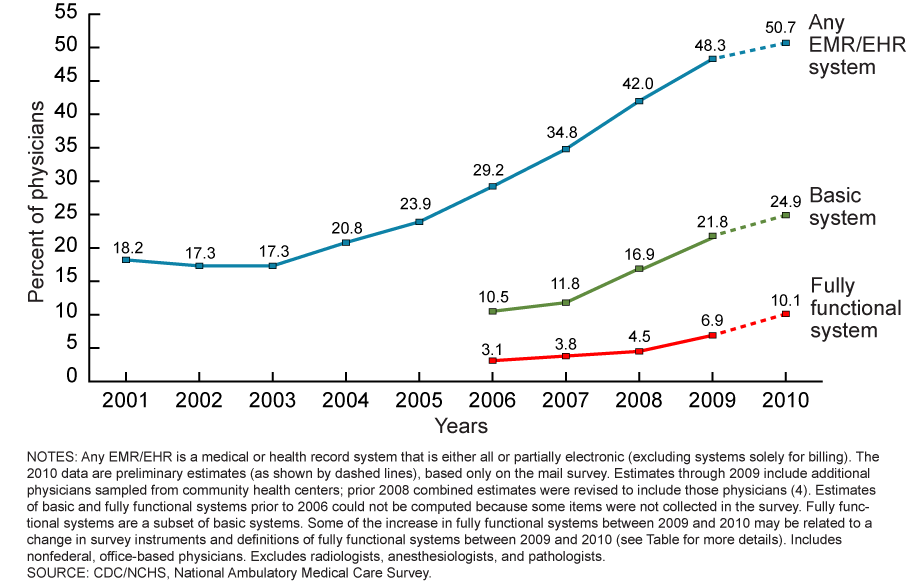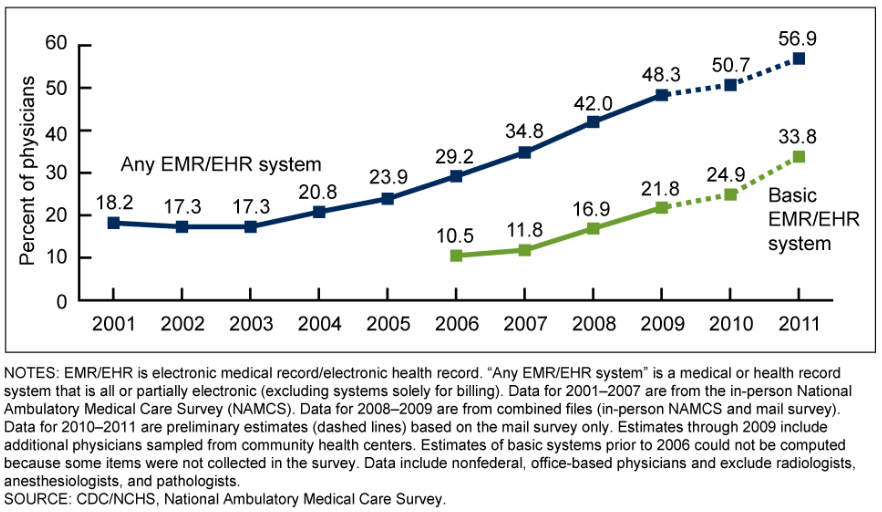The most immediate observation is that 6.2% of physicians have adopted an EHR in 2011, thus returning to EHR growth rates preceding the 2009 -2010 slowdown, which was largely due to the confusion created by Meaningful Use regulations. The next observation is that the percentage of docs that have at least a basic EHR has gone up by 8.9% in 2011. A basic EHR is one that has “patient history and demographics, patient problem list, physician clinical notes, comprehensive list of patient’s medications and allergies, computerized orders for prescriptions, and ability to view laboratory and imaging results electronically”. Although the survey instrument in 2011 did ask about more advanced functionality, and is practically identical to the 2010 instrument, the CDC did not publish a separate number for those with fully functional systems in 2011. Although I cannot be certain, I would assume that most of the growth in 2011 was fueled by certified EHRs, which by definition should be fully functional. So if I had to guess, and I hope CDC will release the numbers so I don’t have to, I would estimate that in 2011 we have at least 20% of physicians using fully functional systems, which is roughly double what we had in 2010.
Another interesting trend that has been holding since around 2007 is that about a quarter of office-based doctors have some type of bare bones software in their office and they are not upgrading to even a basic EHR. Considering that over half of those surveyed intend to apply for Meaningful Use incentives, this trend is bound to change in 2012. Some of these folks may have purchased a fully featured EHR, but chose to either not turn features on or chose not to keep up with upgrades to newer versions. For ambulatory EHR vendors these numbers translate into a market opportunity ranging from 50% of the market to a full 80% of ambulatory physicians.
It would be very beneficial if CDC released the complete data set from this survey (anonymous, of course), so we could gain a better understanding of EHR adoption patterns by practice type, size and location. Although it is widely acknowledged that larger practices and employed physicians are further along the curve, the rich details provided by the survey instrument should help both vendors and various organizations engaged in efforts to spur technology adoption, better target their work, and it could also illuminate any disparities which may affect quality of care for vulnerable populations and physicians who serve them.
In summary, the new CDC survey is showing a stable growth in technology use by office-based physicians, modestly improved by government initiatives over the last two years, and well positioned to further improve in 2012 and beyond.



 RSS Feed
RSS Feed































